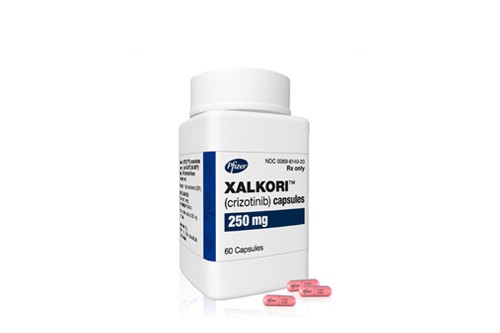
Pfizer’s lung cancer drug Xalkori should not be available on prescription under the National Health Service (NHS) because it does not provide value for money, says the National Institute for Health and Care Excellence (NICE).
Final guidance on Xalokri (crizotinib) for previously treated ALK-positive advanced non-small-cell lung cancer (NSCLC) suggests the acquisition cost of the drug – around £4,689 per month – is too steep, even when Pfizer’s discounted patient access scheme is taken into account.
The final guidance is in line with NICE’s draft appraisal issued in March, which concluded the drug would cost the NHS between £37,512 and £46,890 until disease progression, while a course after disease progression would be £51,579.
The cost per quality adjusted life year (QALY) for Xalkori would be between £50,000 and £100,000 when compared to docetaxel and best supportive care, well above NICE’s typical £30,000 threshold for recommendation.
“Although the independent committee that considered the evidence found crizotinib to be clinically effective treatment [it] could not be considered a cost-effective use of NHS resources,” commented NICE chief executive Sir Andrew Dillon.
“Having already recommended a number of treatments for the various stages of NSCLC, we are disappointed not to be able to add crizotinib as a treatment option for patients,” he added.
Xalkori was launched onto the UK market last December after a conditional approval from the European Medicines Agency (EMA) on the back of positive phase II data.
Pfizer UK managing director Jonathan Emms pre-empted the final NICE guidance for Xalkori with an editorial at the end of last month which slammed the tools used by the agency to review new medicines as “blunt ones with widely recognised limitations”.
“NICE is blocking the innovations that scientists are discovering. Last year it turned down 40 per cent of new medicines, telling the NHS that it cannot use them, or restricting use,” wrote Emms in the opinion piece.
“It’s a sad fact that medicines tackling conditions such as cancer and rare diseases, which are both priority areas for Government, are being hit hardest.”
Xalkori is one of the new medicines in Pfizer’s portfolio that it expects to drive growth in the coming years, and sales reached $120m in the first six months of this year, three times the level in the first half of 2012.




